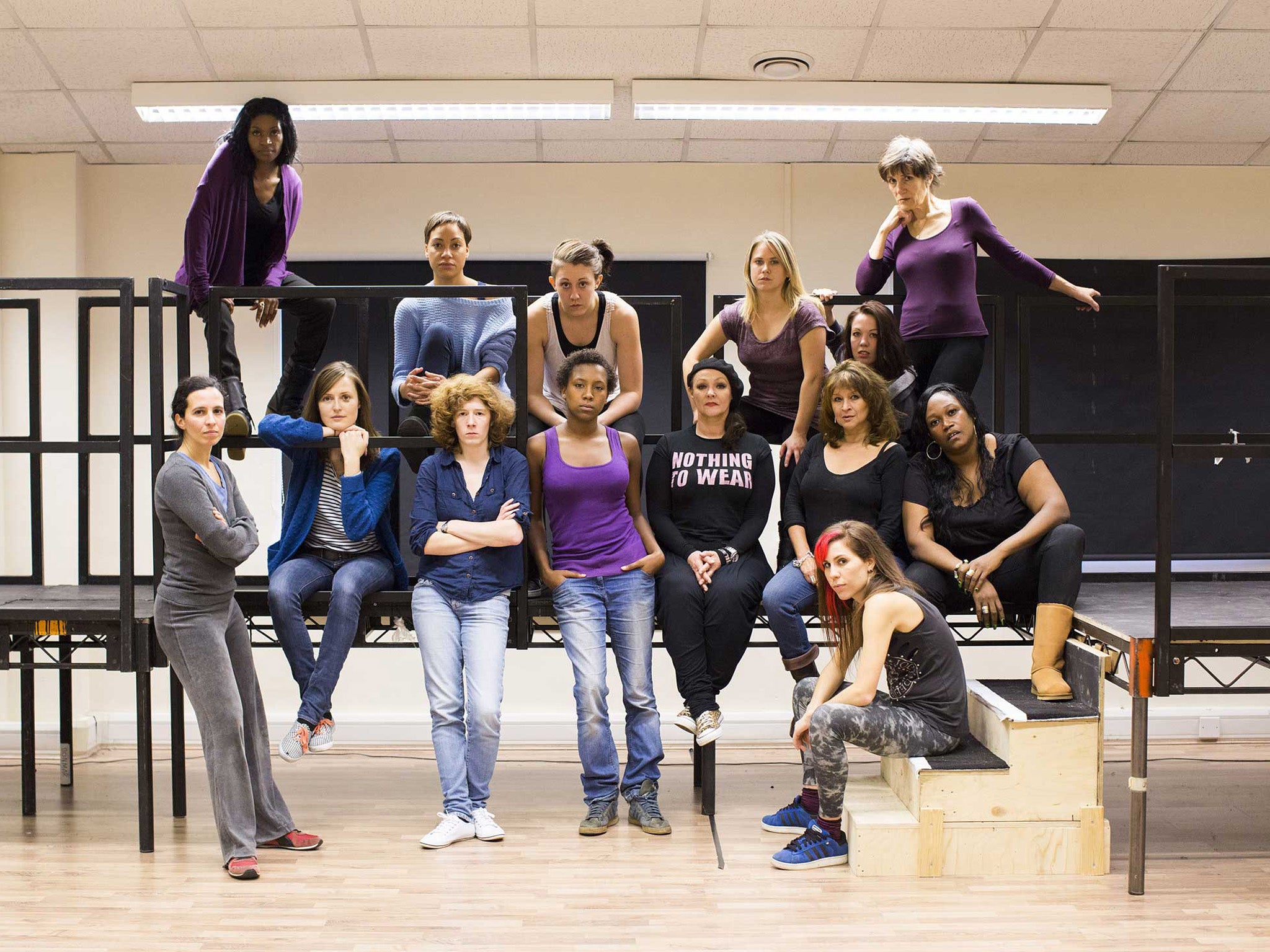An all female cast for Shakespeare's Julius Caesar at the Donmar? That sounds like progress to me
The Bard wrote mostly male roles for exclusively male actors. In a new production, his gender-bias is countered - and that counts as a victory for feminism

Your support helps us to tell the story
From reproductive rights to climate change to Big Tech, The Independent is on the ground when the story is developing. Whether it's investigating the financials of Elon Musk's pro-Trump PAC or producing our latest documentary, 'The A Word', which shines a light on the American women fighting for reproductive rights, we know how important it is to parse out the facts from the messaging.
At such a critical moment in US history, we need reporters on the ground. Your donation allows us to keep sending journalists to speak to both sides of the story.
The Independent is trusted by Americans across the entire political spectrum. And unlike many other quality news outlets, we choose not to lock Americans out of our reporting and analysis with paywalls. We believe quality journalism should be available to everyone, paid for by those who can afford it.
Your support makes all the difference.News of an all-female cast of Julius Caesar has been met largely with joy and approval from the arts community, where gender inequality is still a big problem.
Despite the arts being perceived as more accessible to women than, say, engineering, it is still a massively sexist profession. I've written elsewhere about inequality in the film industry, where research by the British Film Institute says that in 2010, only 22 per cent of employees in film production were women, and the picture for theatre is just as depressing.
Data from Sphinx Theatre says women make up just 35 per cent of actors, 17 per cent of theatre writers, 23 per cent of theatre directors and 9 per cent of film directors in the UK. This production of Julius Caesar, which opens at the Donmar Warehouse this week, is an exciting attempt by director Phyllida Lloyd to redress that imbalance.
Fresh gems
Revivals of old plays inevitably seek to find new shades of meaning, and with a text as rich as Shakespeare’s, a simple tweak, like cross-gender casting, can help a director to mine fresh gems. For example, an all-male production of Twelfth Night at Shakespeare’s Globe brought, according to David Lister, "a new (or rather four centuries old) dimension to the play, a whole new level to the humour and the comic lines."
I haven’t yet seen this production of Julius Caesar and will reserve judgement until I do. I expect that the all-female cast will bring some fresh interpretations to the text. But one concern is that cross-gender casting is becoming a fad rather than a well-thought-out decision on a play-by-play basis.
In Shakespeare’s day, it would have always been an all-male cast, as women weren’t permitted on stage (women have, at least, made inroads since then) so, in a sense, any female casting is a radical departure from the playwright’s original intentions. Perhaps selecting specific roles to be played by women could make a subtle and more effective point about women in theatre than the broad-brush choice to make them all female by default?
It is possible to make a point about feminism without clobbering your audience over the head with it, as demonstrated by James Dacre’s excellent production of As You Like It at the Globe this summer. It successfully put a feminist spin on the text without involving a gender reversal of the entire cast. The two main female characters, played by women, were funny, interesting and through a delicate shifting of focus, their relationship became the central aspect of the play. Jaques — traditionally a male role — was played by Emma Pallant, who made the role her own, and it didn’t feel like a gimmick.
Latch on
Of course, there is new ground still to be broken in terms of prejudice in the theatre. Just at the start of this year, the West Yorkshire Playhouse put on Ian Brown's production of Waiting for Godot, in association with touring company Talawa. It was the first time Beckett's play was performed by an all-black cast in the UK. It was not the all-black cast that intrinsically made it a hit. It was the careful choice of emphasis in the lines that pointed the audience to where extra layers of meaning could be found from a well-worn text.
With 788 male and 141 female characters, Shakespeare wrote an overwhelming majority of male roles. Although some characters, arguably the fools, could be seen as gender neutral, those characters were written by a man, for men to play. If directors really want to make a point about the failings of the industry to treat women fairly, rather than trying to crowbar a female cast into roles written for men, why not take on new work by women, for women, instead?
The current enthusiasm for female casting may be a passing fad, but we need to latch onto it, because, if applied with subtlety, it could signify real progress towards equality.
Join our commenting forum
Join thought-provoking conversations, follow other Independent readers and see their replies
Comments